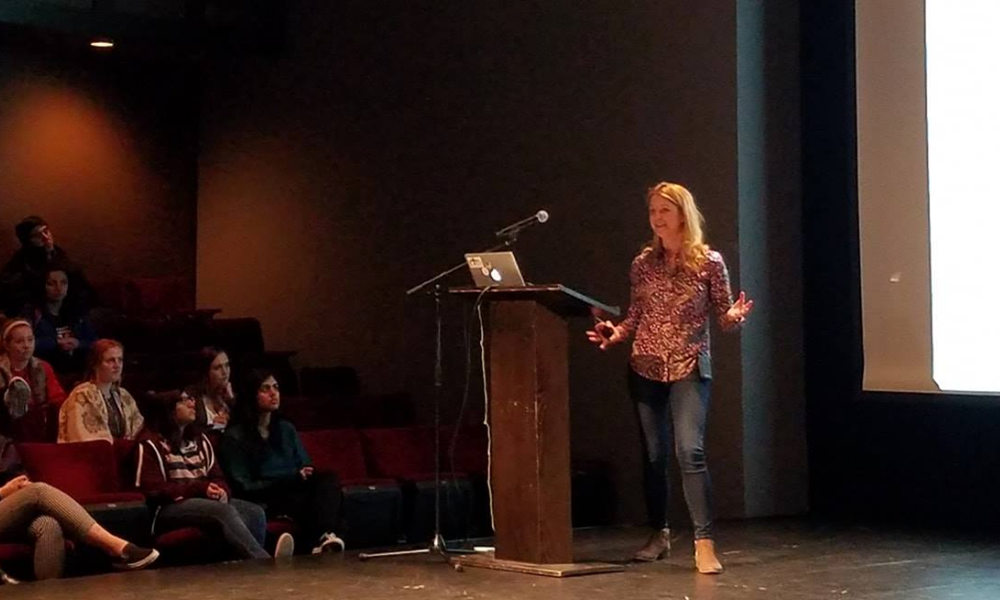Publicly Financed Judicial Elections Viewed as More Legitimate, New Paper Says


New research from Assistant Professor of Government Alyx Mark and Tiger Bjornlund ’24 shows that courts with publicly financed elections are viewed as more legitimate and less susceptible to donor influence than those that are selected through privately financed campaigns.
The paper, titled “Public Campaign Financing’s Effects on Judicial Legitimacy : Evidence From a Survey Experiment,” was published May 30 in the journal Research and Politics.
“There is so much focus on the U.S. Supreme Court, but there are entire other levels of courts that receive less attention that have an impact on our day to day lives,” Mark said.
In Spring 2022, a group of almost 500 respondents were randomly assigned to one of four hypothetical scenarios describing the financing options a judicial candidate took advantage of in a recent election. Two groups received a vignette where the judge was elected through a privately financed campaign. The other two groups were told that the judge’s campaign was financed in part with public funds.
Respondents gave higher legitimacy scores to courts and judges when they saw a vignette in which the judge was chosen through a publicly financed election as compared to a private fundraising scheme.
“While our study does not directly focus on the relationship between campaign contributions and judicial outputs, it suggests that evaluations of court legitimacy could be improved by removing the potential and perceived impropriety that judicial campaign fundraising can cause,” Mark and Bjornlund wrote.
Who serves as a judge and how they come to their role has come under scrutiny in recent years. “How do we balance judicial independence and the democratic accountability of our institutions?” Mark said. “We like to have people in political offices that we can monitor in some way.”
How judges ascend to the bench differs between states and even within states, depending on the level of the court, Mark explained. For example, in Connecticut, the Supreme Court and trial court judges are recommended by a committee, nominated by the governor, and approved by the legislature. The lower-level probate judges are elected positions.
With local politics increasingly taking on the divisive tone of national political discourse, the cost of judicial campaigns is rising, Mark said. According to some scholars, private campaign donations give the impression that the justice system is for sale.
Mark said that academics are divided on whether campaign contributions change judicial outcomes. However, her paper with Bjornlund demonstrates the people believe that while donations might not assure an outcome, donor influence could at least create the damaging appearance of improper influence.
She hopes that advocacy groups will embrace their findings and push for additional public dollars to fund judicial elections across the country. The study also suggests that public financing could improve support for other institutions, like state legislatures, that face similar criticisms.
“We hope that our work might help the public to think differently about public funding initiatives,” Mark said.
Mark believes there are other ways they can build on their research, including using concrete, controversial scenarios to test perceptions of legitimacy. Bjornlund will continue exploring this subject in his senior thesis, studying real world examples of judicial public financing.
“Conducting this research with Tiger is a great example of why working at Wesleyan is so rewarding. One of the reasons we do this is so we can learn from our students, so we can be challenged by them and expand what we think about a particular issue,” Mark said.
Mark is currently working on a book about how state courts handled the COVID-19 pandemic.

